The Fursuit of Happiness Begins With Customized Dog Abs

Before they are furries, fursuits are a bit scary. (Image courtesy of Mischief Makers)
Who do you turn to when you’re in dire need of a plush full-body suit that will make you look like a cartoon dog? That’s a question furries have to ask themselves all the time.
The furry community encompasses a number of interests including fan art, comics, and music, but its most widely seen members are those who have made a hobby of dressing up in cartoonish anthropomorphic animal suits, usually made to their own design.
Ever since furry culture began in the 1980s as a loose conglomeration of enthusiasts who would connect at sci-fi and comic conventions, there has been a need for fantasy artisans that could outfit the fans. But it wasn’t until recently, in response to the rise in popularity of furry culture, that an entire cottage industry of independent fursuit makers arose, ready to craft a second skin to the specifications of their devoted customers.
“I didn’t dream when I first started college this is what I’d be doing for my career,” says fursuit maker Lacy Barnett, who along with her husband Nick operates a successful costuming business that caters solely to the Furry community. ”I enjoyed the work so much it seemed more fulfilling than the area of my degree, so we formed Fursuiting.com.” Barnett first got into making fursuits a decade ago when she started making suits for herself and others and selling them on eBay. Eventually she began getting enough orders to turn it into a self-supporting job.
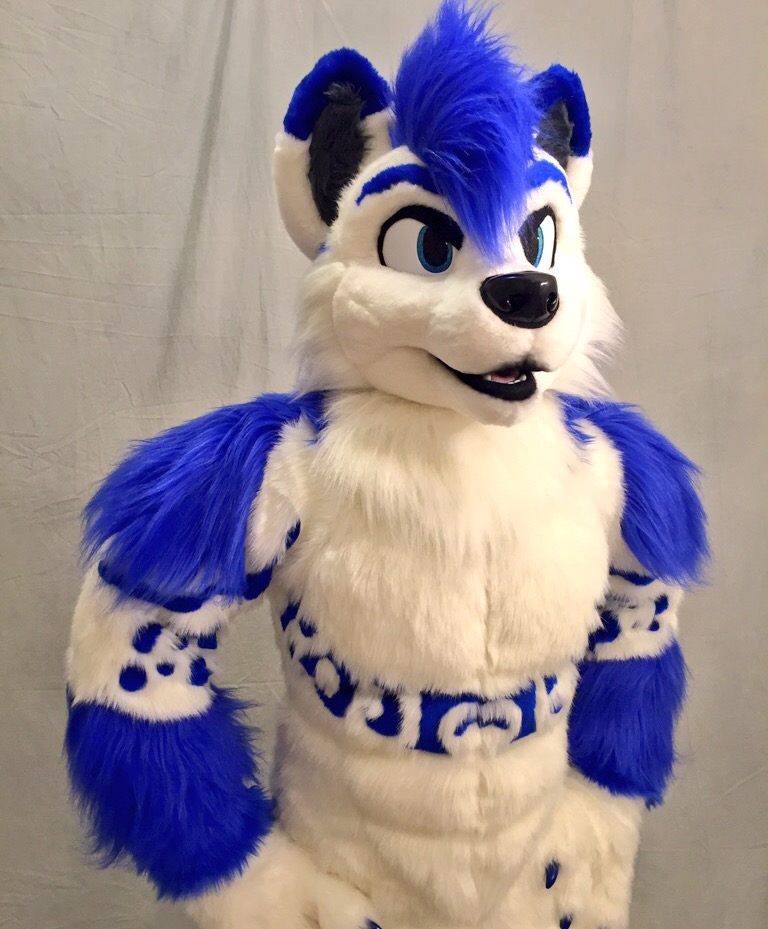
Those abs tho. (Image courtesy of Lacy Barnett)
When customers go to Fursuiting.com, they are asked to fill out a detailed order form that allows the suit to be customized in order to bring their character to life. The options range from broad customization like colorization, how muscly the body will be, and what type of tail should be added, to more esoteric details like whether or not you would like digitigrade-style legs—found in animals who walk on their toes—and whether you want the suit to have hard soles or soft paw pads. You can even send in an illustrated design to bring the specifics of the character to life. Probably the most important question, though, is what species to choose.
The vast majority of fursuits are crafted to resemble some kind of canine. “Wolves, huskies, and foxes seem to be the most popular, but canines in general rule the scene,” says Sadie (character name: “Bongo”) of Mischief Makers, another fursuit creation outfit. “I feel like this has a lot to do with the behavior of the animals themselves. Most people in the furry fandom feel like they don’t fit society’s expectations of normal or expected.” The sense of loyal pack mentality and unconditional companionship found in most canines seems to appeal to fursuit aficionados.
But canines aren’t the only type of animal fursuit makers are asked to create. Furry species range from zebras to armadillos to squirrels to dragons and more. “Some of our most interesting costumes have been unusual species such as koalas, a Tasmanian devil, and even a viscacha [a South American rodent],” says Barnett.
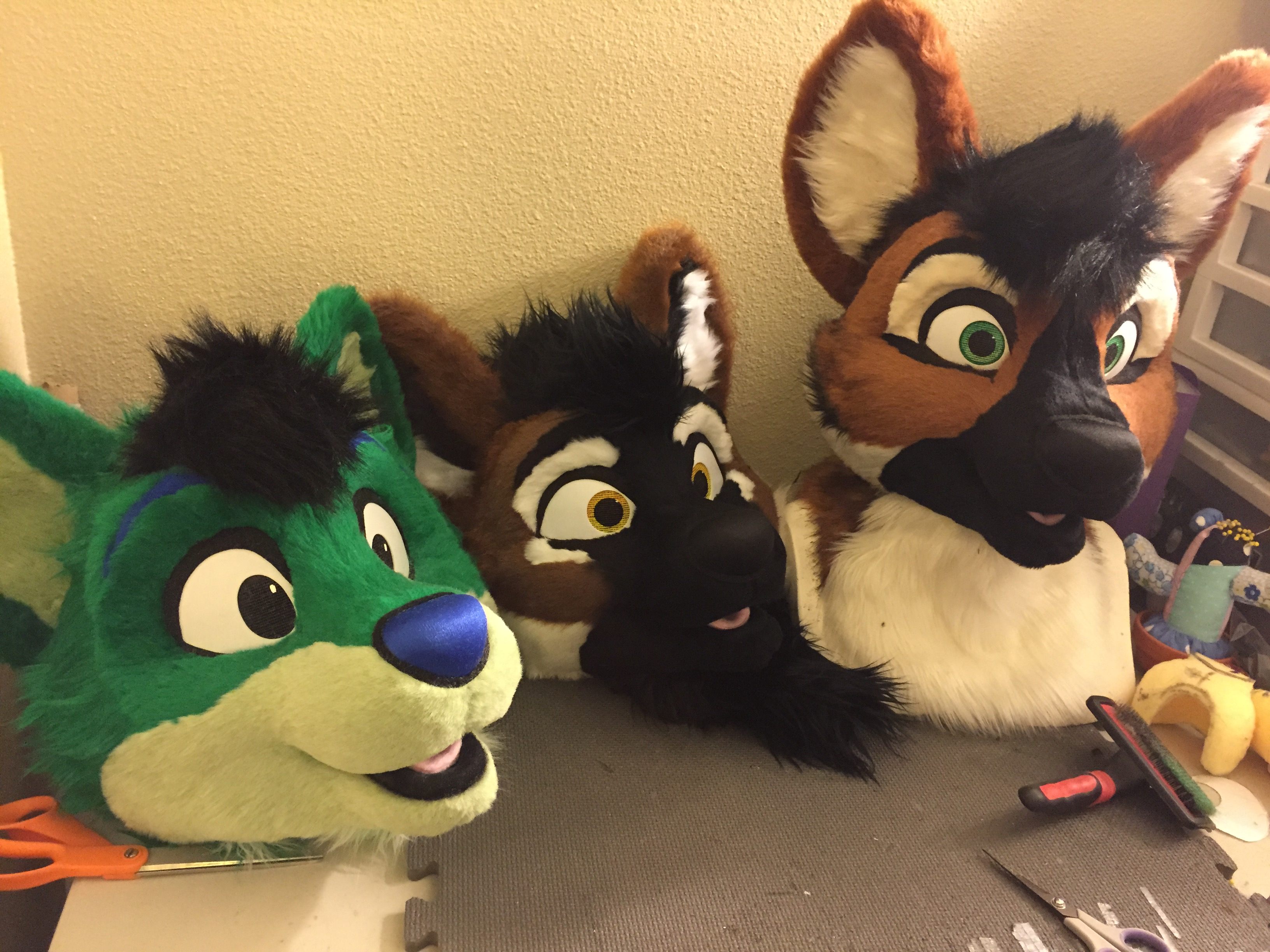
Just some unfinished furry heads from Fursuiting.com (Image courtesy of Lacy Barnett)
With the design down, the fursuiter can go to work. Some creators will have the fursuit customer create a duct tape dummy (DTD, to those in the scene) to get the fit of the bodysuit just right. This involves having them wrap their entire body in duct tape to create a perfect cast of their size. They often smell pretty gross—a result of the plasticky duct tape scent combining with the odor of sweat secreted by the customer during the wrapping process.
Once a fursuit maker has the measurements or DTD, they make the bodysuit portion of the character, usually out of faux-fur fabric, and often in colors that have never appeared on a real canine. They suit can be enhanced and padded to create muscles, breasts, and other features. Then the paws, feet, and tail are sculpted out of foam and added. But the most challenging and most idiosyncratic portion is the head.
Each fursuit maker’s process is a little different, but the Mischief Makers start by building onto a hood. “Our heads start with a spandex balaclava, foam that’s more commonly used for upholstery, and hot glue.” said Sadie, “That is the start for many other makers, though there are some who work with casting resin, expanding foam, mesh, helmets, ball caps, spray adhesives, all sorts of things can be used to start off.” The head is sculpted out of soft foam to the fur fan’s specifications.
The fursuit head can also be outfitted with other key features like different eyes or teeth, but as in any community, the trends come and go. “Following eyes are the big deal right now,” Sadie says. “For a while everyone really wanted moveable jaws, so the character can move its mouth like it’s talking, until most people noticed that also means whenever you want to breathe, you have to open your mouth.”

The ever-popular “following eye.” (Image courtesy of Mischief Makers)
Both the Mischief Makers and Fursuiting focus on creating highly stylized designs—“toony,” in furry parlance—as opposed to striving for realistic animal depictions, although there are some makers who specialize in more uncanny designs. The toony look seems to be the most popular amongst furry fandom though, and for the very simple reason that, as Sadie says, “the realistic suits can almost be a little unnerving, especially for kids.”
For the professionals, creating a fursuit can take anywhere from one to six weeks, costing the buyer upwards of $3,000 depending on the features and custom requests. Some can even go above and beyond that. “The most expensive suit sold at auction to date was created by the maker Phoenix Wolf, and sold for $11,575 after an intense bidding war,” said Sadie. But thanks to the ever increasing popularity of furry culture, business continues to boom. Recently both Mischief Makers and Fursuiting have had to temporarily close their submissions due to demand.

Who wants a dog hug? (Image courtesy of Mischief Makers)
The future of fursuit crafting looks like it will not be innovations in animating the suits, but in making them more comfortable. Most fursuits are purchased to be worn and shown off at a variety of furry conventions like AnthroCon and RainFurrest. Walking around in a full-body costume in the heat of convention season can be a bit grueling so “cooling vests,” which can be frozen and worn under the suit, are also becoming popular.
While it might seem strange and fringe to much of mainstream culture, furry fandom continues to grow. According to Barnett, it gives people a sense of community. “I think there’s something inherently fun and creative about it. As a millennial, I fall in the same age range as a lot of our customers, and I feel it’s a good environment to make new friends, be inspired about creating costumes, and feel like you’re part of something.”

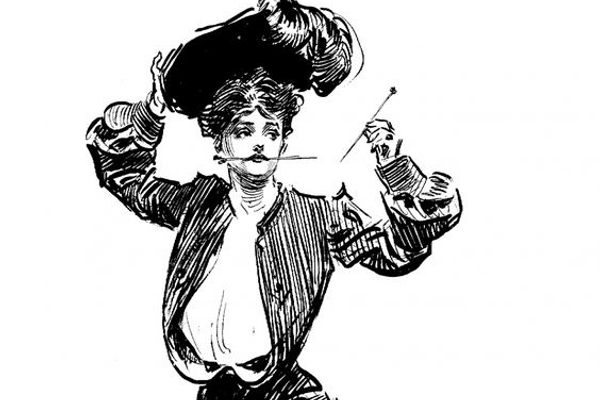
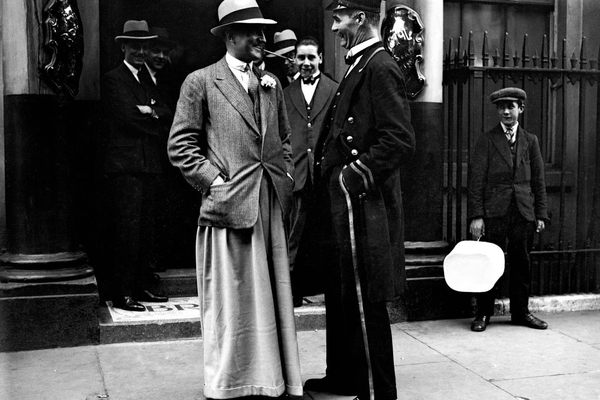

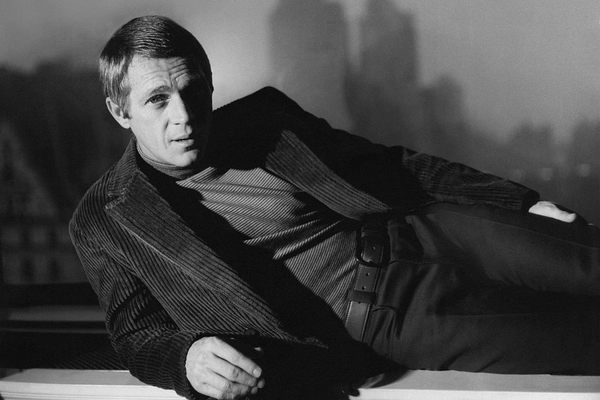


Follow us on Twitter to get the latest on the world's hidden wonders.
Like us on Facebook to get the latest on the world's hidden wonders.
Follow us on Twitter Like us on Facebook